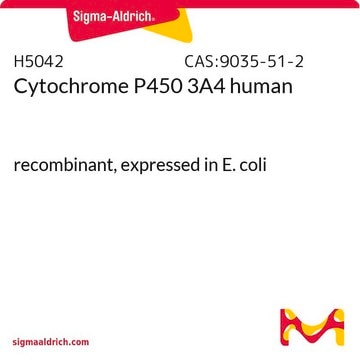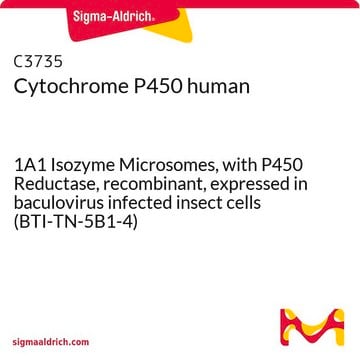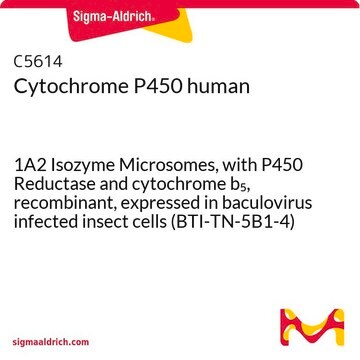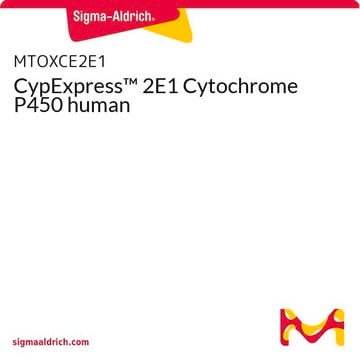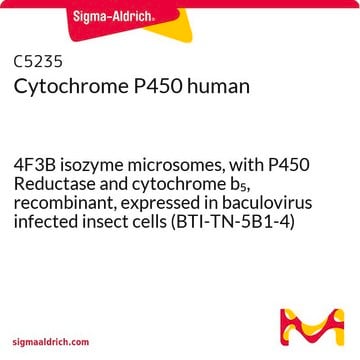C4982
Cytochrome P450 human
3A4 isozyme microsomes, with P450 reductase and cytochrome b5, recombinant, expressed in baculovirus infected insect cells (BTI-TN-5B1-4)
Synonym(s):
Cytochrome P450 enzyme, Human cytochrome P450, P450 enzyme
About This Item
Recommended Products
biological source
human
Quality Level
recombinant
expressed in baculovirus infected insect cells (BTI-TN-5B1-4)
form
solution
mol wt
45-60 kDa
packaging
vial of ~0.5 nmol
vial of ≥25 units
concentration
≥2 mg/mL (Bichinchonic acid method)
technique(s)
co-immunoprecipitation (co-IP): suitable
solubility
water: soluble
suitability
suitable for molecular biology
UniProt accession no.
application(s)
cell analysis
shipped in
dry ice
storage temp.
−70°C
Gene Information
human ... CYP3A4(1576)
Looking for similar products? Visit Product Comparison Guide
General description
Cytochrome P450 (CYP450) is a membrane-bound hemoprotein that constitutes a vast superfamily of heme-thiolate proteins engaged in the metabolism of exogenous and endogenous compounds. These CYP450 enzymes feature an active heme iron center that is bound to a protein molecule via a highly conserved cysteine thiolate ligand.
Application
Biochem/physiol Actions
Other Notes
Unit Definition
Physical form
Storage Class Code
10 - Combustible liquids
WGK
WGK 2
Flash Point(F)
Not applicable
Flash Point(C)
Not applicable
Certificates of Analysis (COA)
Search for Certificates of Analysis (COA) by entering the products Lot/Batch Number. Lot and Batch Numbers can be found on a product’s label following the words ‘Lot’ or ‘Batch’.
Already Own This Product?
Find documentation for the products that you have recently purchased in the Document Library.
Our team of scientists has experience in all areas of research including Life Science, Material Science, Chemical Synthesis, Chromatography, Analytical and many others.
Contact Technical Service